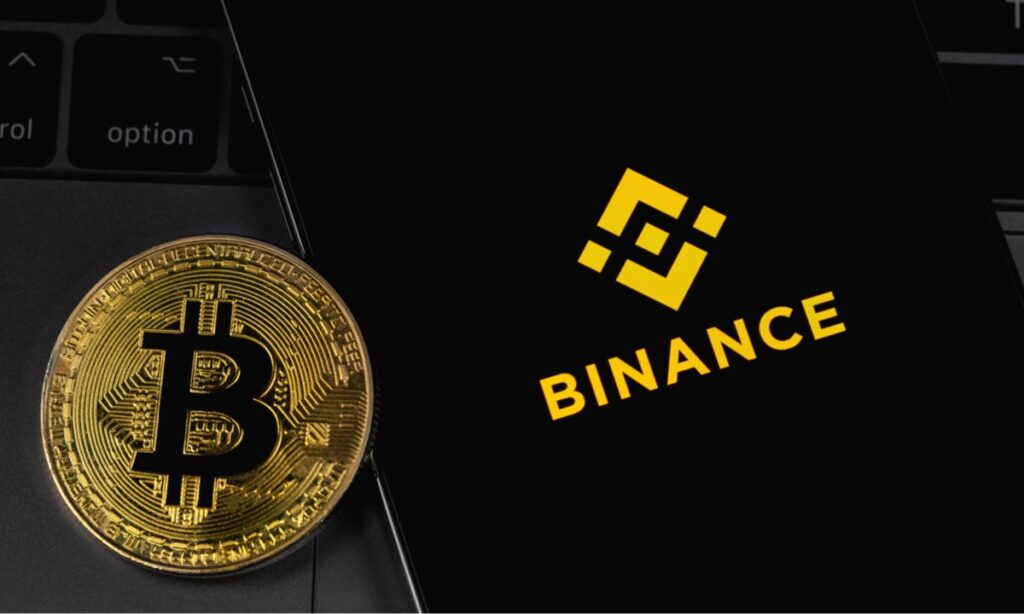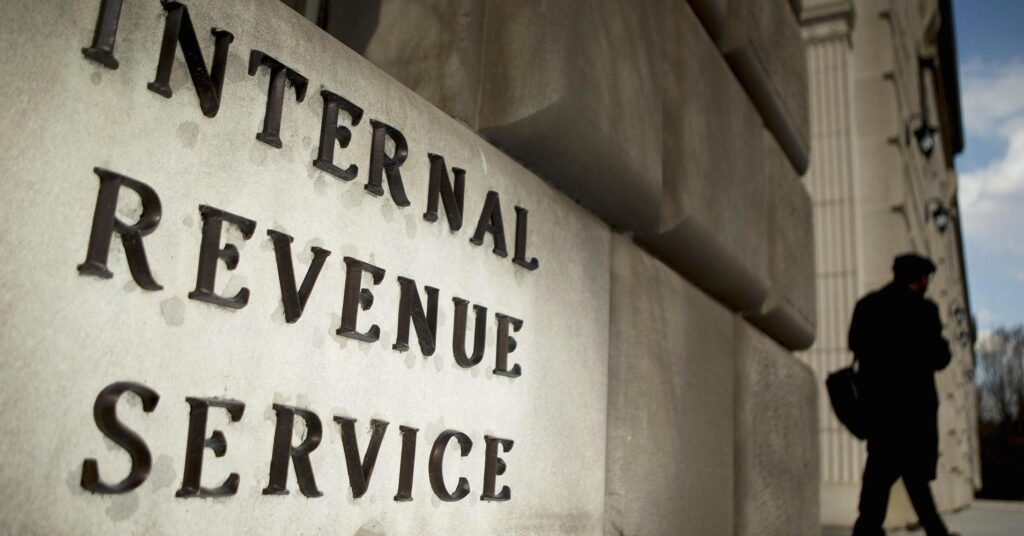Eeon, a third-party entity, has entered the legal battle between the United States Securities and Exchange Commission (SEC) and Binance, a cryptocurrency exchange.
According to court filings submitted to the United States District Court for the District of Columbia, Eeon argues that the SEC and Binance’s attorneys have failed to adequately represent the interests of Binance’s customers, prompting Eeon to step in and seek representation on their behalf.
Eeon asserts that they are the appropriate party to be involved in this case, citing a court order from June 17, 2023, which identified them as “Customers.”
They claim that they are not ordinary customers, but rather stakeholders, investors, and owners of cryptocurrency held by Binance and its subsidiaries.
Eeon firmly believes that their interests were not adequately taken into consideration during the legal proceedings.
The crux of Eeon’s argument is that cryptocurrencies should be classified as commodities rather than securities.
READ MORE: SEC Stresses Crucial Clarification Amid Coinbase Battle
They argue that cryptocurrencies are primarily used for personal and household purposes rather than commercial transactions.
Eeon also highlights the lack of specific regulations for cryptocurrencies, which limits the SEC’s jurisdiction over these assets.
Furthermore, Eeon alleges that Binance has exerted control over customers’ crypto assets by blocking access and withdrawals without proper notice.
They contend that the SEC’s actions have worsened the situation for investors instead of protecting their interests.
Eeon accuses the SEC of wrongly accusing customers of money laundering.
Consequently, Eeon is seeking a court order to grant customers access to their frozen assets on Binance’s platforms.
Eeon also argues that offshore fund transfers are a common and accepted practice, separate from money laundering activities.
They provide examples of various entities, such as e-commerce platforms, freelance services, consulting firms, small export companies, and travel agencies, that routinely engage in international money transfers without being associated with money laundering.
In their counterclaim, Eeon demands compensation from both Binance and the SEC.
They propose that the compensation should amount to 20% of the daily value of withheld funds per customer, totaling $1000 per day.
Additionally, Eeon asserts that both Binance and the SEC should equally share the responsibility of paying penalties, with $500 assigned to each party.
Cointelegraph has reached out to Binance for further information on the matter but has not yet received a response.
Other Stories:
Coinbase Temporarily Suspends Staking Services
Bitcoin Long-Term Holders Return as BTC Price Surges
Cardano Surges 23.9% Following Favorable XRP Ruling, Investors Eye Further Gains
Florida Governor Ron DeSantis, a United States presidential candidate, has once again expressed his opposition to central bank digital currencies (CBDCs) and stated his intention to ban a digital dollar in the country if elected as president.
Speaking at the Family Leadership Summit on July 14, DeSantis firmly declared, “If I am the president, on day one, we will nix central bank digital currency. Done. Dead. Not happening in this country.”
His remarks were made in Iowa alongside six other Republican Party candidates.
DeSantis has consistently voiced his concerns about a digital dollar in the United States. In May, he signed a bill in Florida that prohibits the use of federal CBDCs as legal tender.
Furthermore, he also banned the utilization of foreign CBDCs, arguing that it would result in a substantial shift of power from consumers to a central authority.
A central bank digital currency closely resembles traditional currency issued by central banks. It represents a digital version of fiat currency, offering the advantages of digital assets.
Nevertheless, CBDCs have been a subject of controversy within the cryptocurrency community.
Critics argue that they pose a threat to citizens’ privacy and could enable excessive government control.
On the other hand, proponents view CBDCs as a means to promote adoption and as a global use case for blockchain technology.
READ MORE: Coinbase Temporarily Suspends Staking Services
According to Cointelegraph’s CBDC database, the number of CBDC projects has significantly increased in recent years, with over 100 countries exploring the technology and at least 39 nations either conducting CBDC pilots, implementing proof-of-concept initiatives, or pursuing other related efforts.
While the U.S. Federal Reserve currently has no immediate plans to introduce a digital dollar, this stance could change following next year’s election, as more candidates are engaging in discussions about crypto-related topics during their early campaign stages.
For example, Robert F. Kennedy Jr., vying for the Democratic Party nomination for president, has been actively promoting Bitcoin since May and has disclosed investments worth up to $250,000 in the cryptocurrency.
As the political landscape continues to evolve, the debate surrounding CBDCs and their potential impact on financial systems, privacy, and government control will likely remain at the forefront of discussions among policymakers and candidates.
Other Stories:
SEC Stresses Crucial Clarification Amid Coinbase Battle
Bitcoin Long-Term Holders Return as BTC Price Surges
Cardano Surges 23.9% Following Favorable XRP Ruling, Investors Eye Further Gains
Binance, the popular cryptocurrency exchange, is marking its sixth anniversary amidst reports of significant layoffs.
The Wall Street Journal revealed that more than 1,000 employees have been laid off in recent weeks, resulting in a global downsizing of the workforce.
Customer service workers, particularly in India, have been heavily impacted by these cuts. With these recent layoffs, the total number of job losses at Binance now exceeds 1,000.
Prior to these cuts, Binance’s global headcount was estimated to be around 8,000, implying a potential reduction of more than one-third of its staff due to ongoing restructuring efforts.
On May 31, Binance had already announced a 20% reduction in staff, although they insisted it was not a downsizing measure but rather a reallocation of resources.
According to a spokesperson for Binance who spoke to Cointelegraph, the aim of these changes was to enhance the company’s agility and adaptability in preparation for the next major bullish phase in the cryptocurrency market.
Recent data from Glassdoor revealed that Binance had some of the least satisfied employees in the crypto industry.
READ MORE: Ripple’s XRP Victory Against SEC: A Blow to Regulator’s ‘War on Crypto’
In response, a Binance spokesperson stated that the company seeks to hire individuals who can excel in a high-performance environment and are entirely dedicated to delivering exceptional service to users.
Since early June, Binance has faced a series of regulatory challenges globally, triggered by a lawsuit filed by the United States Securities and Exchange Commission.
In just 30 days, Binance was ordered to cease operations in Belgium, failed to secure a license in the Netherlands, was denied a crypto custody license in Germany, and lost its euro banking partner.
Furthermore, the exchange is under scrutiny in France and has been summoned to appear before Brazil’s Congress in relation to a Ponzi scheme investigation.
According to The Wall Street Journal, Binance’s most significant ongoing challenge is the investigation by the U.S. Justice Department into its activities and executives.
Binance CEO Changpeng “CZ” Zhao has steadfastly refused to relinquish control or step aside, which has raised concerns about the exchange’s long-term survival.
This stance reportedly led to the departure of several top executives, including former Chief Strategy Officer Patrick Hillmann.
On Binance’s sixth anniversary, celebrated on July 14, Zhao acknowledged that the company’s journey had been far from smooth sailing.
Other Stories:
Worldcoin’s World ID Project Surpasses 2 Million Users
OpenAI Faces FTC Investigation Over Privacy and Data Practices
The United States Securities and Exchange Commission (SEC) has clarified its stance on approving firms’ S-1 applications to go public.
According to court documents from the SEC vs. Coinbase case on July 13, the SEC argued that granting approval for a company to go public does not imply that the agency endorses or verifies the business’s compliance with regulations.
During the pre-motion hearing, SEC trial counsel Peter Mancuso emphasized that the approval of an S-1 filing does not constitute a blessing of the company’s entire business or its underlying structure.
Mancuso further stated that there was no evidence to suggest that the SEC examined specific assets or made determinations regarding their classification as securities, thereby providing Coinbase with assurances against future regulatory issues.
READ MORE: Worldcoin’s World ID Project Surpasses 2 Million Users
This statement by the SEC raised questions among individuals on Crypto Twitter, including Gemini co-founder Cameron Winklevoss.
It challenged the SEC’s role in allowing a potentially noncompliant business to proceed with a public listing, considering its responsibility to safeguard American consumers.
In the United States, companies must submit an S-1 filing to the SEC before listing shares on a national stock exchange.
This filing requires a comprehensive disclosure of the business structure and the planned utilization of funds from the initial public offering.
U.S. District Judge Katherine Polk Failia expressed skepticism and raised concerns about the SEC’s position during the hearing.
She expected the SEC to conduct due diligence on Coinbase’s activities and potentially warn against any securities law violations or uncharted territories regarding the assets on Coinbase’s platform.
Mancuso clarified that the SEC’s focus in approving S-1 filings is primarily on reviewing company disclosures rather than providing endorsement or approval of the business structure itself.
Judge Failia then questioned whether the SEC had the power to instruct Coinbase to register as a securities exchange. Mancuso responded that he couldn’t comment on that matter.
The SEC had initially charged Coinbase for allegedly conducting unregistered securities offerings dating back to 2019.
Coinbase is seeking an early dismissal of the case based on various arguments, one of which asserts that the SEC is charging the company despite having received detailed descriptions of its business structure and planned activities prior to the public offering.
In summary, the recent court documents shed light on the SEC’s position that approving an S-1 filing does not indicate endorsement of a company’s business structure or regulatory compliance.
The case involving Coinbase highlights the complexities surrounding regulatory oversight of cryptocurrency-related businesses.
Other Stories:
OpenAI Faces FTC Investigation Over Privacy and Data Practices
Monochrome Asset Management Proposes Bitcoin ETF on ASX
Ripple’s XRP Victory Against SEC: A Blow to Regulator’s ‘War on Crypto’
Zac Prince, the CEO of cryptocurrency lending firm BlockFi, is facing allegations of ignoring warnings from the company’s risk management team regarding lending assets to Alameda Research.
The unsecured creditors’ committee filed a document on July 14 with the United States Bankruptcy Court for the District of New Jersey, stating that BlockFi’s risk management team had raised concerns about the high risks associated with lending assets to Alameda.
Despite these concerns, Prince allegedly dismissed the team’s recommendations and proceeded to lend Alameda $217 million by August 2021.
The risk management team had warned about potential risks if the loans secured by the FTX Token (FTT) needed to be liquidated.
The filing revealed that as early as August 2021, BlockFi’s risk management team was informed that a significant portion of Alameda’s balance sheet consisted of unlocked FTT tokens.
This information alarmed the team, but Prince disregarded their concerns and encouraged them to become comfortable with Alameda’s borrowing size.
READ MORE: Ripple’s XRP Victory Against SEC: A Blow to Regulator’s ‘War on Crypto’
Discussions between Prince and the risk management team regarding the risks associated with lending to Alameda shifted to offline meetings and Slack after January 2022.
BlockFi had approximately $1.2 billion tied to FTX and Alameda when it filed for bankruptcy.
In November 2022, when BlockFi filed for Chapter 11 bankruptcy, it acknowledged its significant exposure to FTX and its associated entities.
In July 2022, FTX US received a $400 million credit line from BlockFi, further deepening the financial ties between the two firms during a period referred to as the crypto winter.
The report stated that BlockFi recalled its loans from Alameda in June 2022, and Alameda repaid most of its outstanding balance.
However, instead of severing ties with Alameda, BlockFi decided to lend them nearly $900 million between July and September 2022, with the loans primarily collateralized by FTT tokens.
While it is acknowledged that Alameda/FTX’s downfall might have contributed to BlockFi’s demise, the filing emphasized that BlockFi’s problems were rooted in its own business practices and decisions that predated Alameda/FTX’s bankruptcy filing.
BlockFi issued a statement to Cointelegraph, stating its disagreement with the report.
The firm also filed a separate court document claiming that the committee behind the report cherry-picked statements out of context and failed to provide the promised objective analysis.
BlockFi directly cited its exposure to FTX as one of the reasons for its bankruptcy filing.
The practice of collateralized loans based on FTT tokens by FTX resulted in losses for numerous firms when the token’s price plummeted from over $25 to under $2 during the Chapter 11 filing and reported liquidity issues.
Other Stories:
OpenAI Faces FTC Investigation Over Privacy and Data Practices
Former FTX CEO Sam Bankman-Fried has made a request to the New York District Court Judge Lewis Kaplan, seeking permission for his “close friends” to visit him at his parent’s home without undergoing the security checks mandated by his bail conditions.
Bankman-Fried’s lawyers submitted a letter on July 13, urging the judge to extend the exemption from security measures to individuals on a pre-approved list.
At present, only Bankman-Fried’s legal representatives and employees from his contracted law firm are exempt from these checks.
The lawyers have requested that this privilege be extended to the visitors authorized by the court.
The list submitted by Bankman-Fried’s lawyers, which has been reviewed by the prosecutors without objection, includes “close friends and colleagues of Bankman-Fried’s parents and household help who regularly visit the house.”
To ensure the privacy and safety of the individuals mentioned in the list, the document was filed under seal, with the lawyers arguing that the importance of protecting the mentioned individuals far outweighs any presumption of public access to the list.
As part of the bail conditions set by Judge Kaplan, Bankman-Fried is currently limited to using a laptop solely for accessing court-approved websites, including specific news sites and YouTube. He is also in possession of a phone that has no internet access, allowing him only to make and receive calls and texts.
The lawyers representing Bankman-Fried assured that those on the approved visitor list are fully aware of his bail conditions and are committed to complying with them, which includes refraining from sharing any electronic devices with him.
Since being granted bail in December 2022, Bankman-Fried has been residing at his parent’s residence in Palo Alto, California.
It is important to note that the same property has been put up as collateral for his substantial $250 million bail bond.
While Bankman-Fried was originally scheduled to stand trial on October 2, a subsequent decision split five of the charges into a separate trial set to commence on March 11, 2024.
Other Stories:
United States DoJ Moves $299 Million Worth of Bitcoin in Recent Transactions
Bitcoin ETF Approval Could Act as Government’s ‘Seal of Approval’
Elon Musk Launches xAI: A New Venture to Unravel the Mysteries of the Universe
Coinbase’s Base mainnet is now accessible to builders, as stated in a blog post by the network’s development team on July 13.
This early opening of the network is aimed at allowing more time for user onboarding before its official public launch, which is scheduled for August.
Coinbase initially unveiled the Base network on February 23, presenting it as an Ethereum layer-2 solution that would leverage the OP Stack software developed by Optimism.
The Ethereum community welcomed this announcement, perceiving it as a significant vote of confidence for Ethereum’s future.
In the recent announcement on July 13, the team revealed that the Base mainnet currently features two operational block explorers and an official RPC node, enabling users to access data and transmit transactions.
READ MORE: Bitcoin ETF Approval Could Act as Government’s ‘Seal of Approval’
Data from the block explorers indicates that the network has been operational since July 2, having successfully processed over 1 million transactions.
Blockchain data confirms the deployment of an official “OptimismPortal” or Base bridge contract on Ethereum.
This contract enables developers to transfer Ether (ETH) to the new network for gas fee payments.
Notably, the bridge does not have a web-based user interface (UI), necessitating the use of a command-line interface or script-based interactions.
During the initial “builder” phase, the team has decided to withhold a publicly accessible bridge with a UI.
They have specifically requested developers to refrain from launching UIs for their applications until the upcoming public launch, where this feature will be available.
To celebrate this milestone, builders are given the opportunity to mint a commemorative non-fungible token (NFT) called “Base is for builders.”
Furthermore, developers deploying a contract to the network and completing a form on the project’s website will receive a “Genesis Builder NFT” as a reward.
Optimism Labs, the creator of the OP Stack, envisions a future where Base and Optimism form a “Superchain,” comprising multiple networks sharing the same security features.
However, this Superchain is expected to face competition from zkSync’s “Hyperchains,” which aim to offer similar functionalities.
In conclusion, Coinbase’s Base mainnet is now accessible to builders, enabling them to explore and contribute to the network ahead of its public launch.
This marks an important step in the development of the Base network and its integration with Ethereum’s ecosystem.
Other Stories:
United States DoJ Moves $299 Million Worth of Bitcoin in Recent Transactions
Elon Musk Launches xAI: A New Venture to Unravel the Mysteries of the Universe
In a recent blog post by Joseph Mills, the group product manager of Google Play, it was announced that the platform now permits video game publishers to sell nonfungible token (NFT) games on its store.
This update, shared on July 12, highlights Google Play’s commitment to exploring innovative ways for users to transact blockchain-based digital content within apps and games, while also enhancing user loyalty through unique NFT rewards.
The move by Google Play marks a significant shift from its previous stance on cryptocurrency-related applications.
Back in 2018, the platform banned crypto mining apps, and in 2020, it removed the Bitcoin Blast video game due to “deceptive practices.”
In contrast, Apple’s App Store announced in October that NFTs acquired outside of its ecosystem cannot confer special benefits to users within a game, under the risk of being banned.
Furthermore, NFTs sold within the App Store must adhere to a 30% fee to Apple.
READ MORE: President Xi Jinping Highlights CBDCs and Expansion of SCO
These decisions and statements led many industry experts to speculate that mobile NFT games were under attack. However, Google Play’s recent policy revision clearly signals a welcoming approach to these games on Android devices, albeit with a few regulations in place.
According to Mills’ blog post, game developers must transparently indicate if their games enable users to earn or purchase NFTs or cryptocurrencies.
Moreover, developers are prohibited from glamorizing potential earnings from playing or trading activities, as well as selling loot boxes or incorporating gambling features.
By complying with these guidelines, game developers can leverage tokenized assets to enhance the gaming experience.
They are encouraged to reimagine traditional games by integrating user-owned content. Google Play emphasized that it collaborated with leaders in Web3 gaming to establish these rules and expressed its commitment to engaging with developers to understand their challenges and explore further opportunities.
The decision by Google Play to allow NFT games on its platform represents a significant development for the gaming industry.
With these updated policies in place, developers can harness the power of NFTs to create unique and engaging experiences for players, while adhering to responsible practices outlined by Google Play.
As the ecosystem evolves, it is likely that we will witness further collaboration between game developers and platforms, leading to exciting advancements in the intersection of gaming and blockchain technology.
Prosecutors and the Internal Revenue Service (IRS) in the United States are reportedly conducting investigations into wealthy individuals involved in cryptocurrency trading and fund management, suspecting them of illegally benefiting from Puerto Rico’s tax incentives.
Bloomberg’s report on June 12 revealed that civil and criminal cases are being built against hedge fund managers, crypto traders, and other affluent Americans who may have misrepresented their residency and income to exploit the tax breaks.
The investigations extend to attorneys and accountants who promoted Puerto Rico’s tax program, and it is anticipated that at least two criminal investigations will lead to charges in the near future. Charges under scrutiny include conspiracy and wire fraud.
READ MORE: United States Government Accountability Office Publishes Blockchain Report
Attorney Carlos Ortiz shared insights from a conversation with a U.S. federal prosecutor, stating that they are collaborating with IRS agents and Puerto Rico officials. Ortiz summarized the situation by saying, “The message is the noose is tightening.”
Since the implementation of Puerto Rico’s new tax policy in 2012, over 5,000 U.S. individuals have relocated to the territory, attracted by the potential savings in federal income tax.
The tax policy provides a 100% exemption on dividends, a 60% exemption on municipal taxes, and zero federal taxes on income earned within Puerto Rico.
Furthermore, more than 3,600 businesses have enjoyed exemption from taxes on dividends, only paying a 4% tax on exports.
While these tax benefits are among the most lenient globally, the requirements to qualify for them are stringent.
Applicants must prove residency on the island for a minimum of 183 days annually and establish Puerto Rico as their “tax home.”
According to lawyers familiar with the tax regime, the strict eligibility criteria have tempted many individuals to manipulate numbers and engage in fraudulent activities on their tax returns.
Renowned figures such as gold enthusiast Peter Schiff and crypto investor Michael Terpin have relocated to Puerto Rico for tax purposes.
However, Schiff’s bank was recently shut down by Puerto Rican regulators for failing to meet minimum capital requirements.
Speaking at Miami’s annual Bitcoin Conference, Terpin praised Puerto Rico as the only place where one can avoid paying global taxes without relinquishing U.S. citizenship.
Despite the potential scrutiny, Terpin expressed confidence in his meticulous record-keeping and willingness to face an audit.
While wealthy residents laud the tax breaks for attracting top fund managers and entrepreneurs to the island, protests have arisen, claiming that the influx of low-tax “colonizers” has raised living costs.
The tax program remains a subject of contention in Puerto Rico.
Binance’s BNB Beacon Chain mainnet is gearing up for a critical hard fork, which introduces a novel feature that enables the blockchain to stop new block production under specific conditions.
The impending upgrade, called “ZhangHeng,” is slated to take place at block height 328,088,888, expected to happen on July 19, as revealed in a statement from BNB Chain on July 12.
This significant hard fork will implement the Binance Evolution Proposal BEP-255, aimed at introducing on-chain asset reconciliation.
The addition comes in light of cross-chain bridge exploits such as the BNB Smart Chain breach in October 2022, which Binance believes can be mitigated by this strategy.
READ MORE: President Xi Jinping Highlights CBDCs and Expansion of SCO
Despite security enhancements like BEP171, Binance affirms the need for asset security on the BNB Beacon Chain, especially following bridge exploitation.
The BEP-255 implementation allows tracking of user balance changes per block, and reconciliation to spot potential anomalies.
Binance points out that if any reconciliation errors are detected, block production will cease. This move may affect bridges, deposits, and withdrawals on exchanges but is deemed crucial for the chain and user protection.
Restarting the blockchain will necessitate a hard fork and resolution of the detected reconciliation error. In case of an exploit, the related accounts will need to be corrected or blacklisted.
The blockchain’s resumption will also restore downstream services.
The upcoming hard fork also involves other upgrades, such as fixing a bug that curbs rogue key attacks. Existing vote addresses will be cleared when the hard fork reaches its height, and validators will have to re-add vote addresses.
The update is also designed to enable the chain to handle complex business rules and logic more effectively.
Binance highlights the need for two-thirds of validators to upgrade to software version v0.10.16 prior to the hard fork to avoid complications. Failing to upgrade would prevent full nodes from executing further blocks post-hard fork.
BNB Chain has provided comprehensive instructions for node operators to conform to the hard fork upgrade. BNB token holders using Binance.com, other centralized exchanges, or cold wallets, however, need not take any action presently.
On June 19, BNB Chain introduced opBNB, a new Ethereum Virtual Machine-compatible layer-2 scaling solution based on Optimism’s OP Stack.












